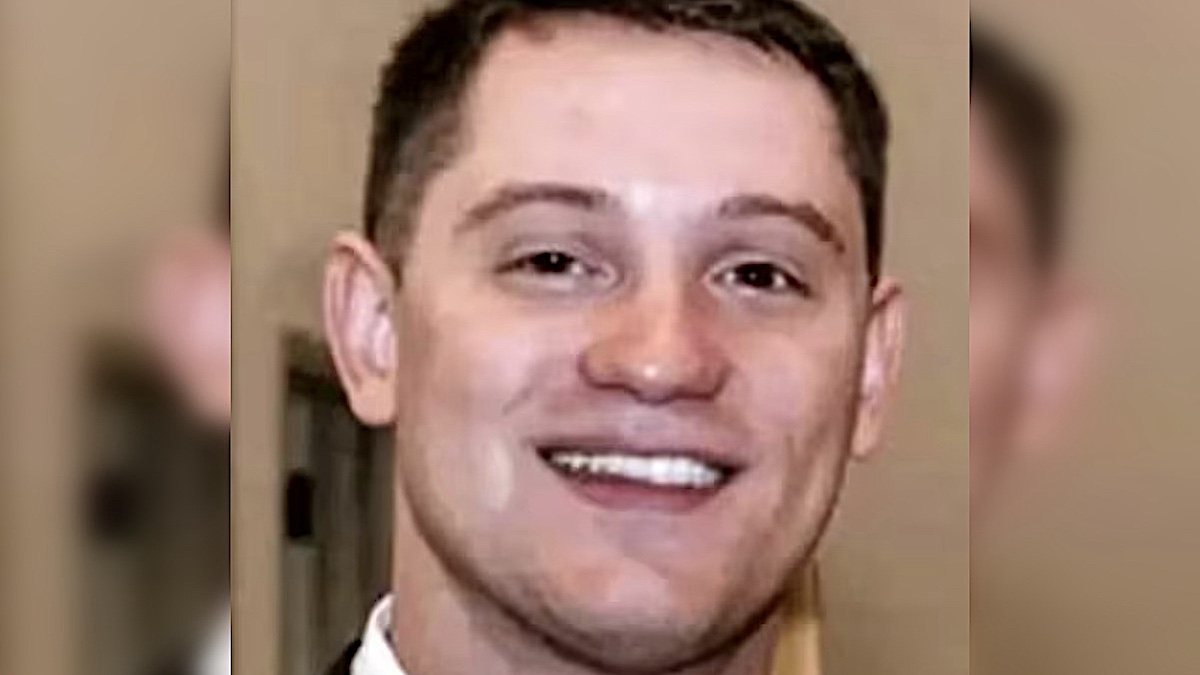Content warning: This article mentions suicide. Please take care while reading.
26-year-old police officer Ryan Kingerski of Penn Hills, Pennsylvania, died by suicide after enduring months of severe complications following LASIK eye surgery. His death has reignited concerns about the potential risks associated with this popular elective procedure.
All he wanted to do was “live a normal life”
According to Pittsburgh news outlet WPXI, Kingerski underwent LASIK surgery in August 2024, seeking to improve his vision. However, post-surgery, he began experiencing debilitating side effects, including intense headaches, extreme light sensitivity, double vision, and visual disturbances like floaters and dark spots. Despite consulting multiple specialists, his symptoms persisted, rendering him unable to perform his duties as a police officer.
“On the ride home, he kept saying about how, ‘Something’s not right with my right eye,’” Ryan’s father, Tim Kingerski told WPXI, recalling the immediate aftermath of Ryan’s procedure. “And I said, ‘What do you mean?’ And he said, ‘It’s very foggy. I can’t really see out of it, and the pain in my head.’”
According to Tim, Ryan’s condition worsened until, “On Nov. 19, we got a letter from Lasik Plus saying that they would no longer see him as a patient.”
In a note left behind, Ryan reportedly wrote, “LASIK took everything from me,” highlighting the profound impact the surgery had on his life.
LASIK surgery and its risks
LASIK, or laser-assisted in situ keratomileusis, is a widely performed refractive surgery aimed at correcting vision issues like nearsightedness, farsightedness, and astigmatism. The procedure involves reshaping the cornea using a laser to improve visual acuity, often eliminating the need for glasses or contact lenses.
While LASIK boasts a high satisfaction rate, and most patients are pleased with the results, it’s not without risks. Common side effects include dry eyes, glare, halos, and double vision. In most cases, these symptoms are temporary, but for some, they persist and can significantly impact quality of life. Rarely, patients experience severe complications such as chronic eye pain or visual disturbances that can lead to psychological distress.
Medical professionals have acknowledged these concerns. Dr. Morris Waxler, a former FDA adviser involved in LASIK’s approval process, has since expressed regret over his role, stating that the real complication rates may be higher than reported.
Speaking with WPXI, Waxler added, “What are those serious effects? Irremediable pain, constant itchiness of the cornea, can’t drive at night, can’t see details. These are not small matters.”
Ryan’s story is not isolated. There have been other reports of individuals experiencing severe post-LASIK complications leading to depression and, in extreme cases, suicide. For instance, Detroit meteorologist Jessica Starr died by suicide in 2018 after struggling with complications from LASIK surgery
In a statement, LASIK Plus said, “The safety and effectiveness of Lasik is established by a large body of peer-reviewed clinical data, more than 7,000 individual studies over the past 25 years. Lasik is a safe and effective correction option for those patients who are medical candidates.”
If you or someone you know is struggling or in crisis, help is available. Call or text 988 or chat at 988lifeline.org. A list of international crisis resources can be found here.











Published: May 28, 2025 02:40 pm